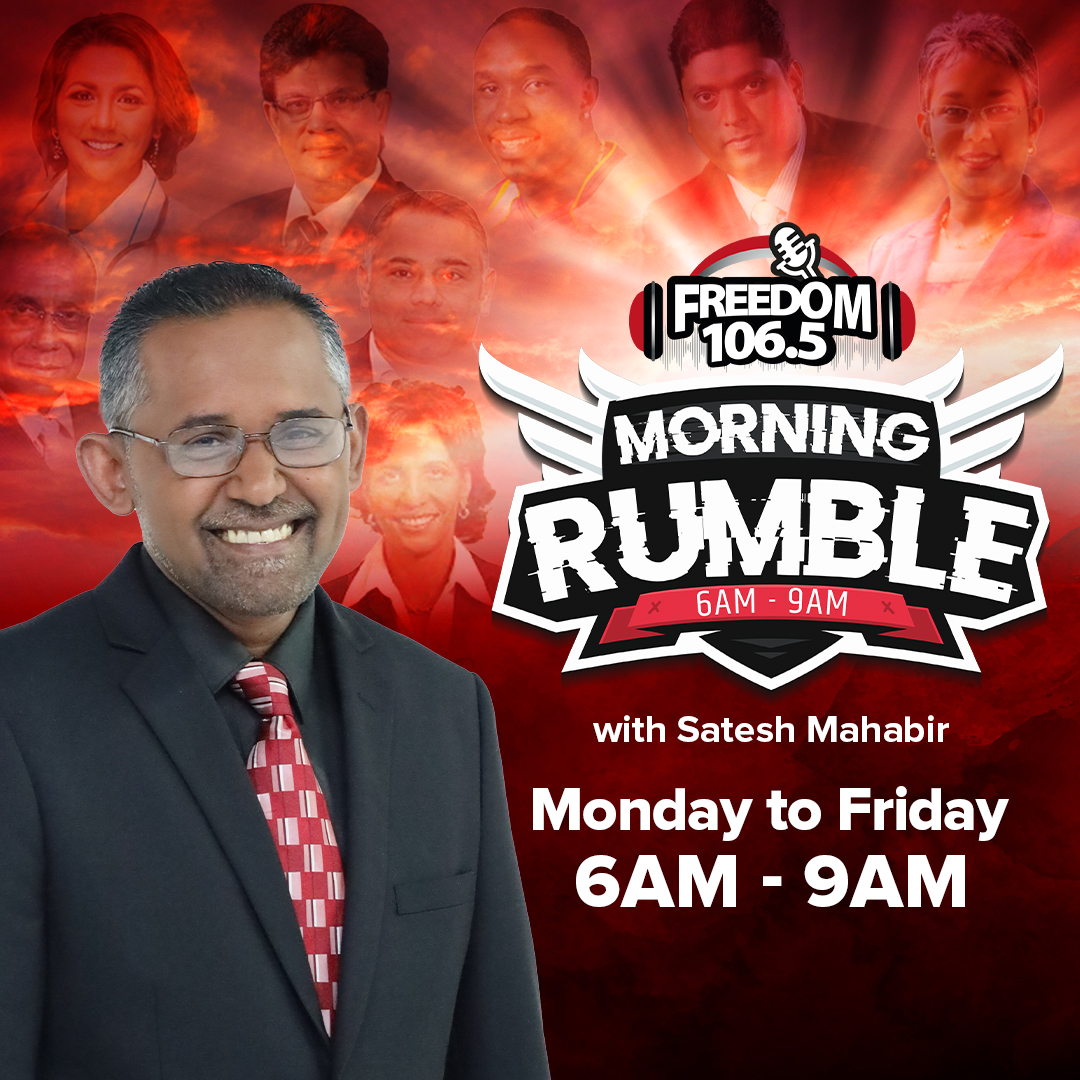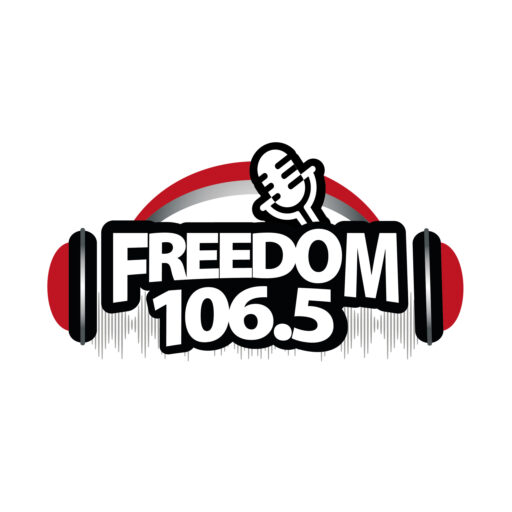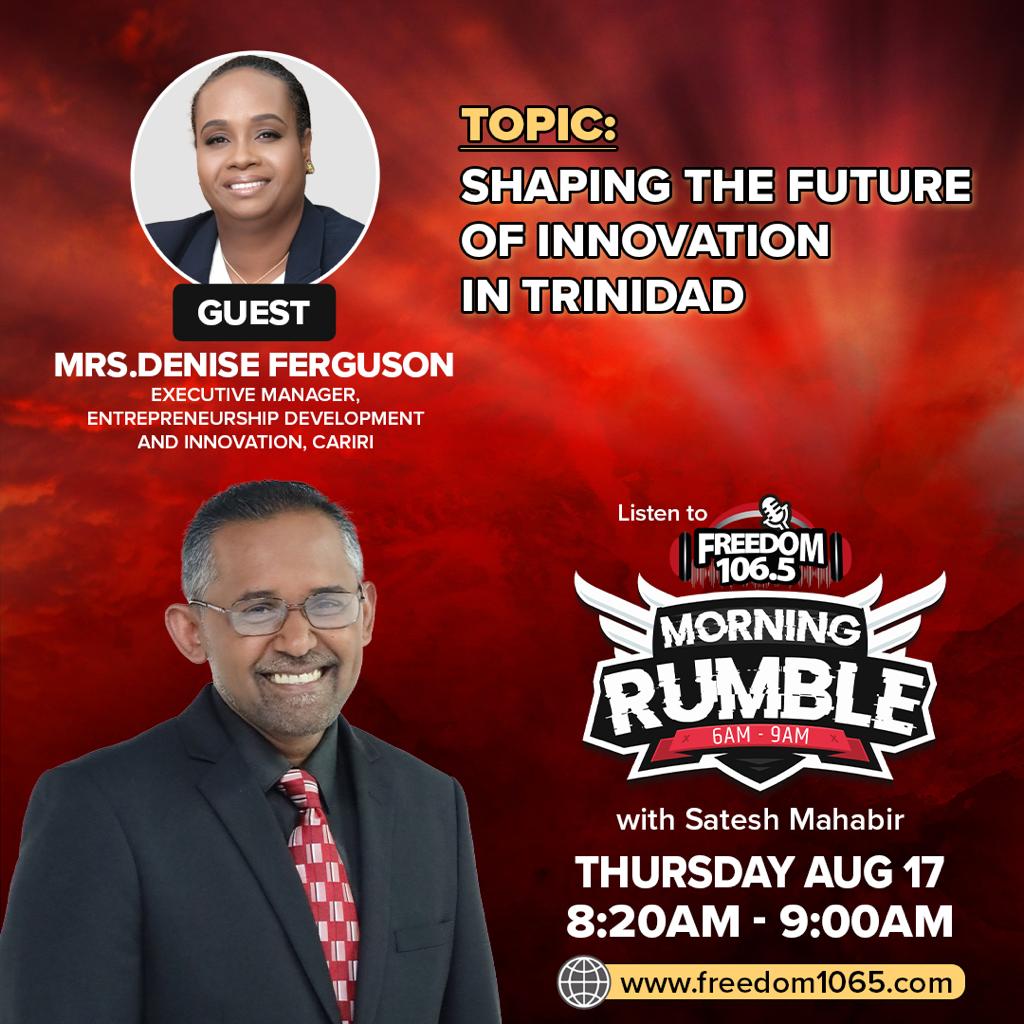Episode Transcript
[00:00:01] Speaker A: The best insight, instant feedback, accountability. The all new talk radio Freedom 106.5.
[00:00:10] Speaker B: Welcome back. Well, this time we have another interesting interview for you. We're talking sport, in particular, cycling and our contenders headed to France, Olympics 2024.
Let's welcome to our our program this morning, president of the TNT Cycling Federation, that's Rowena Williams. Good morning to you and welcome to our show.
[00:00:47] Speaker C: Morning and thank you very much for having me.
[00:00:49] Speaker B: It's nice to have you with us here this morning.
And also joining us this morning, tiny my tracks print a cyclist.
Madonna Wheelers. That's Liam Lowell. Good morning to you as well.
Good morning.
[00:01:07] Speaker D: Thank you for having me.
[00:01:08] Speaker B: Nice to have both of you here with us this morning. Let's, let's begin by setting the platform for you to both familiarize our listeners with you so they're aware of some of the things that you're involved in and so on. Let's begin with Rowena Williams, president of the TNT Cycling Federation. Tell us a bit about yourself and some of the things that you're involved in and your portfolio as president of TNT Cycling Federation.
[00:01:34] Speaker C: Hi, good morning again and thank you for having us.
Well, as you know, my name is Rowena Williams. I've been the president Jopley Cycling Federation since 2021. Also, I'm a vice president for the Caribbean Cycling Federation and VP with the Olympic Committee. And of course, I've been in cycling for over 30 years or so from a young child. So cycling is a passion for me and definitely wants to see it grows from strength to strength. And we are seeing the a lot happening in cycling with a lot of potentials, a young one coming up. So, you know, we just want to enhance what we recording in progress and build.
[00:02:23] Speaker B: Sir, will I continue?
[00:02:26] Speaker C: Yeah. So we want to look at how we build this port and get it to that next level.
And of course, a lot of the work that have been done over the last four years, one, having the National Cycling Velodrome commissioned as a satellite center with the international body and doing a lot of work in terms of capacity building and training for our athletes as well as within the region. That's what the satellite center is, a center for the pan american region where athletes can come and train and, you know, build themselves.
[00:03:04] Speaker B: Tell us before we get Liam into the discussion how vibrant is cycling in the country.
And the reason why I'm asking is what is the engagement? Because at Christmas time the most popular gift is our bike. A bicycle.
But somewhere down the line, I don't know if we continue, if we encourage, if we have the facilities and the opportunities to keep people involved and keep younger ones wanting to get involved in cycling. What's taking place?
[00:03:38] Speaker C: Well, we have a lot of programs taking place, especially on the club side. The federation is made up of clubs, so the clubs are span from north, south, east, west, central. We have over 22 clubs that are registered with the federation and they have their programs that they run.
For instance, the Madonna Wheeler Cycle Club has a Saturday program where Liam would have been part of that program coming out. They have a Saturday program where a lot of youths in that area would come and be part of. We also had up to late last year, two camps run from the, with the Scouts association. The scouts have a lot of centers around, so we tap into the scouts and we had two programs running, and a lot of those children from that scout program are now with the federation racing competitively. So, you know, we have that program running where we have a lot of youths. We have separate events for the youths every year come August month. We do have a youth championship where they do Olympics type events and they vie for national championship medals. And that's from the age of five to twelve. And a number of youths we have within the organization bringing them up. And a lot of the cyclists, like the Nicholas Paul, who is now in the Olympics, came out of those programs that we would have started.
[00:05:11] Speaker B: Let's get Liam into the conversation here this morning. Liam, let me allow you first to tell our listeners a bit about yourself and some of the things you're involved in.
[00:05:21] Speaker C: So.
[00:05:22] Speaker D: Well, I am a Tylenol in the club Madonna Wheelers, and I am currently the grand Prix champion and the national and national champion of track and road. I've been cycling for about four years, but competently, I'm cycling for two years.
[00:05:44] Speaker B: How did you get involved in professional cycling?
Yeah, because that's a process I'd like our listeners to know about. We may have people listening in to us who have young ones or whatever, and they'd like to get involved. What was the process like for you.
[00:06:01] Speaker D: From a young age? I've been cycling with Madonna Wheelers in the developer program, and then as I grew older, I start having more interests on the sport of cycling and I realized and I wanted to compete with other people and race.
[00:06:29] Speaker B: Okay, but did the experience, the journey? Was it a hard one? Was it an easy one?
Describe it for us. Tell us about what actually happened.
[00:06:42] Speaker D: Well, training for me is very hard because after the balance of school and training, so I train five days a week with Tuesday, Tuesday, Wednesday, and Saturday, Sunday. So Tuesday, and Thursday is track cycling in the arena, Bella's room.
And Sunday is indoor training and Sunday's indoor trading. And Saturday and Wednesday is route training.
[00:07:16] Speaker B: Tell us, Rowena and Liam, either one of you okay about France? Olympics 2024 athletes headed there. What's our contingent looking like and how many people and so on?
[00:07:32] Speaker C: Well, we have two cyclists. We would have qualified two spots, sprint and carrying spots through the qualifying period. So we have two cyclists heading out to do the sprints. And Karen, that would be Nicholas Paul and quesy Brown.
And of course, you know, Nicholas has been knocking on those doors, metal potential going forward. And Kwesi has also quite recently improved in his times. And we looking very good for medal potential come Olympics 2024.
[00:08:08] Speaker B: Okay, we need to take a quick break and we'll be right back.
[00:08:12] Speaker A: The best insight, instant feedback, accountability. The all new talk radio Freedom 106.5.
[00:08:20] Speaker B: Welcome back.
We are speaking the president of the TNT Cycling Federation, Rowena Williams, and the cyclist Liam Lowell. So our preparations for the Olympics well underway. We have our contenders who are heading across to the Paris 2024 Olympics. Of course, you have athletics and we have cyclists as well. And definitely all eyes will be on our contingent heading over there. Let's speak about just a bit before we wrap up our interview, the preparations to get there and the individuals who actually qualify. When it comes to the issue of cycling, do you think we have enough in place? And this is probably a question for the president of the Cycling federation. Are we doing enough?
Do we have enough things in place to encourage people to want to be a part of cycling and to see it as something that's viable for them to move on to events like the Olympics?
[00:09:31] Speaker C: Well, I think there's always room for improvement. We have been doing a lot. We have been doing a lot. We have the facilities.
One of the areas that we need to know to focus on more is getting a full time coach that would work in the center for the cyclists. I mean, each club has their coaches. All coaches in the clubs are all certified coaches. So they all have a wealth of knowledge. We have over 30 coaches certified in Trinidad and Tobago that are, well, expert and then their knowledge. But I think we do need to do a little more for when we reach to that higher level to prepare our coaches. So we are working on that area, especially having now the satellite center where the cyclists don't need to go away or go foreign to train because the facilities, it's an Olympic style facility. So they have everything that is needed here that they can train, you know, with Nicholas and Quesi, they both trained here under. At the point in time, we had Aaron Hartwell here as the assigned coach, and he worked with them and assisted them in their qualifications, getting them prepared for the 2021 Olympics at that time. And they eventually went on to train at the UCI center in Switzerland, where they are currently preparing for the Olympics now. And, you know, they have that opportunity. So the satellite center is just under the UCI World Cycling center, so it's overseen by the international body.
But having that full time resource at the center is one that we are working on to have that continuity moving from one level to the next. But in terms of preparing our cyclists for even regional competition and international competition, our coaches are well equipped to have that. As you can see, we just came back from the junior Pan Ams event, and our juniors, we came back with eight medals, and all our cyclists were trained here in Trinidad. They went away and they have their individual coaches who prepare them. They are even breaking records. So I think we have the capacity with our coaches here. They are well equipped to understand, but of course, there's always room for improvement, and we are working on that.
[00:12:07] Speaker B: Yeah, I. One of the things that I find so, so admirable when we have these discussions is our athletes continue to do well in spite of all the challenges that they are confronted with, and they're confronted with a lot when it comes to resources and support from. From state level, all these kinds of things. It's not necessarily where you would want it to be. That's putting it nicely in many instances. And yet still, our athletes, excuse me, they are able to climb over all of those hurdles and do very, very well. You spoke about how many medals they got and all these things. And it's credit to persons who are involved in the various disciplines, like yourself, and the various coaches who do a lot of things to ensure that their charges, their students, have the best possible training and the best possible outcome. And we have numerous instances of those. As we wrap our interview, Liam, there's a question that I want to ask. How old are you?
[00:13:17] Speaker D: I am 14 years old.
[00:13:19] Speaker B: Great.
That's a pretty young age. And you seem to be. You've achieved a considerable amount already to other youngsters who may be listening in to us, who don't know if this is something they should consider when it comes to getting involved. What would you say to them when it comes to cycling?
[00:13:43] Speaker D: Cycling sports are very competitive. Gotta be.
I had to be very better sports also.
[00:13:55] Speaker B: Okay, that's a good.
[00:13:58] Speaker D: So I recommend, like, if you have a certain interest in cycling, and you don't really see any improvement. Education, um, push yourself, and then one day you'll see an improvement in your sport.
[00:14:15] Speaker B: And as we're gonna have to leave our interview here this morning, I want to thank both of you for giving us the information and giving us an insight into what's going on. And we definitely wish all our athletes the best.
[00:14:27] Speaker A: The best insight, instant feedback, accountability. The all new talk radio Freedom 106.5.


